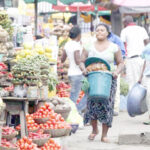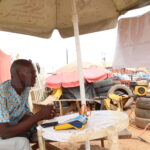From Hamisu Kabir Matazu (Maiduguri), Salim Umar Ibrahim (Kano), Hassan Ibrahim (Bauchi) & Usman A. Bello (Benin)
As Ramadan period fast approaches, checks by Daily Trust on Sunday across states revealed that the ongoing cash crunch occasioned by federal government’s naira redesign and cashless policy is affecting shopping.
Our correspondent who visited markets in Maiduguri, the Borno State capital, observed that Muslim faithful had difficulty buying goods ahead of the Ramadan fast.
To compound the situation, Point of Sale (PoS) operators also charge exorbitantly per transaction.
A customer at Bulunkutu market, Humaira Abubakar, said, “As big as this market is, few shop owners accept PoS or accept transfers, so one must have cash to buy food items like beans, groundnut, vegetables and other spices.
Election: Petty traders, food vendors lament low patronage
Amidst cash crunch, others, yam farmers begin planting
“For many weeks I have not seen cash. What we normally do is to buy goods from few traders that have PoS, then add a little to get cash from them before we buy other things,” she said.
She said the prices of goods were increasing on a daily basis, and unfortunately, “There is nothing we can do because for us to get the stuff we must buy from the same people everyday.”
Halima Daud, a customer in one of the shops, told our correspondent that she had an issue with the PoS.
She said, “The PoS declined my transaction but the money was deducted from my account. It was the only money I had and the shop owner refused to give me the goods.
“What I had in the account was only N25,000 and I bought some foodstuff of N23 200, which was deducted without giving me the items.”
A trader, Mubarak Abdullahi, said they had applied for PoS but could not get it on time because the devices were scarce and many people had applied, so they must wait for our turns. He added, “Customers are disturbing us and the PoS operators we liaise with charge much.”
He called on the Central Bank of Nigeria (CBN) to make the old notes available so that people would get relief from the current situation.
“Even dealers prefer cash to transfers. And sometimes they would insist on getting half pay on cash before they would allow us to transfer the rest,” he lamented
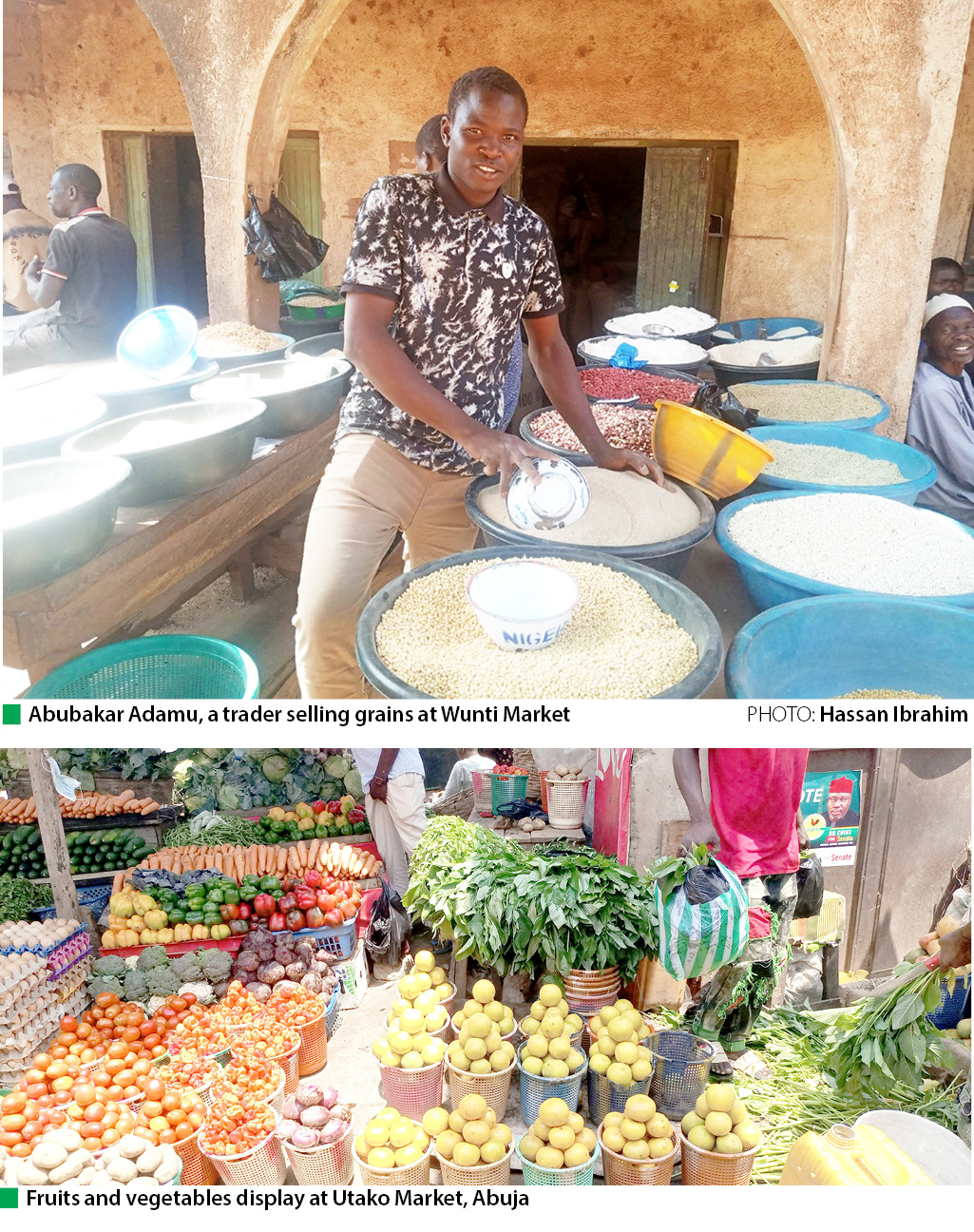
Kano residents yet to start Ramadan shopping
Daily Trust on Sunday reports that as a result of the cash crunch, Muslim faithful in Kano are lamenting and expressing worry over their inability to start shopping for the forthcoming 40-day fasting, unlike what obtained in previous years.
Lamenting over the development, Ibrahim Sani, a civil servant, said most people accepted the present hardship as the will of God, but, however, added that the situation is alarming.
Sani said, “It is no news that people are suffering, and there is no sign or hope that things would be better. It is worrisome.
“By this time in other years I would have bought everything I would use during Ramadan, including cloths my family and I would wear on Sallah day. But sadly, this time around I have not done anything. I don’t even know what to do.”
Aminu Alhassan, a father of three also said, “Everything has changed. There is no job. The rich are also complaining about the situation.
“As a labourer, I don’t make much money; I struggle to feed my family. Whenever there is no job I would be forced to borrow and later repay.
“We will use the one month to pray hard that things would change. I believe that God would not leave us to starve.”
Alhassan added that while he was able to buy new cloths for his children during Sallah celebrations, he had spent at least three years without buying any for himself.
A mother of two who did not want her name mentioned also said, “You can’t cook red soup now because the tomatoes you used to buy at N500 is now N1,500. And if you cook enough soup there is no light to preserve it in the refrigerator, and heat will spoil it.
“As a single mother, I take care of my two children who are all old enough to fast. Due to the unavailability of cash, business has crashed. Sometimes I spent a whole day without selling to two customers.
“For the upcoming Ramadan and Sallah, we will just hope in God and see what he would do for us; but there is a serious problem.”
A trader at Singa Market in Kano, Garba Mukhtar, told Daily Trust on Sunday that people who usually came on annual basis to shop for Ramadan at a time like this were yet to come, while some of them were seeking to buy food items on loan.
“I have some customers who came to buy foodstuff in bulk whenever it was one or two months to Ramadan, but this time, very few came and they did not buy as much as they used to. We don’t also see customers like before,” he said.
Bauchi, Maiduguri, Kaduna residents affected
The scarcity of cash has also unsettled many residents and paralysed businesses in Bauchi State.
A resident of Bauchi metropolis, Sani Umar, said the cash situation plunged him and his family into untold hardship as they now find it difficult to feed and no longer think of shopping for Ramadan. “I am only praying to witness the Ramadan period in good health. I and my family will manage whatever is available. Shopping to prepare for Ramadan is no longer feasible due to the scarcity of cash.
Another resident, Abdulkadir Aminu, said the scarcity of cash had made life so difficult that people had been forced to forget about Ramadan shopping.
“I am struggling to provide daily food for the family. I am working in a private company. I did not think about Ramadan shopping because fasting will start before the end of the month and only God knows how we will manage to go about the exercise because of the cash crunch.
“However, hope is not lost because spirited individuals donate to assist the vulnerable and poor with food items and cash, as well as essential commodities during Ramadan. I believe Allah will intervene to give succour to common people during this trying time,” Aminu said
Traders, especially small and medium scale ones, are also counting their losses as they record poor patronage due to cash crunch.
A trader who sells grains at Wunti market, Abubakar Adamu, told Daily Trust on Sunday that less than one week to the commencement of Ramadan, residents are yet to start shopping.
He said, “My major concerns are poor sales and those who insist on paying with debit cards. This is really affecting our businesses and gradually weakening our capital.”
Another trader at the market, Rilwanu Abdullahi, however, said that very few privileged persons had started shopping for Ramadan.
“I remember that days back, some people came to my shop to buy essential commodities, including rice, in preparation for Ramadan. They paid with their debit cards.
“Before the introduction of the naira redesign policy, during Ramadan period or when the month is about to start, many people trooped out to the market for shopping. I believe the scarcity of cash is responsible for the poor patronage we are experiencing.”
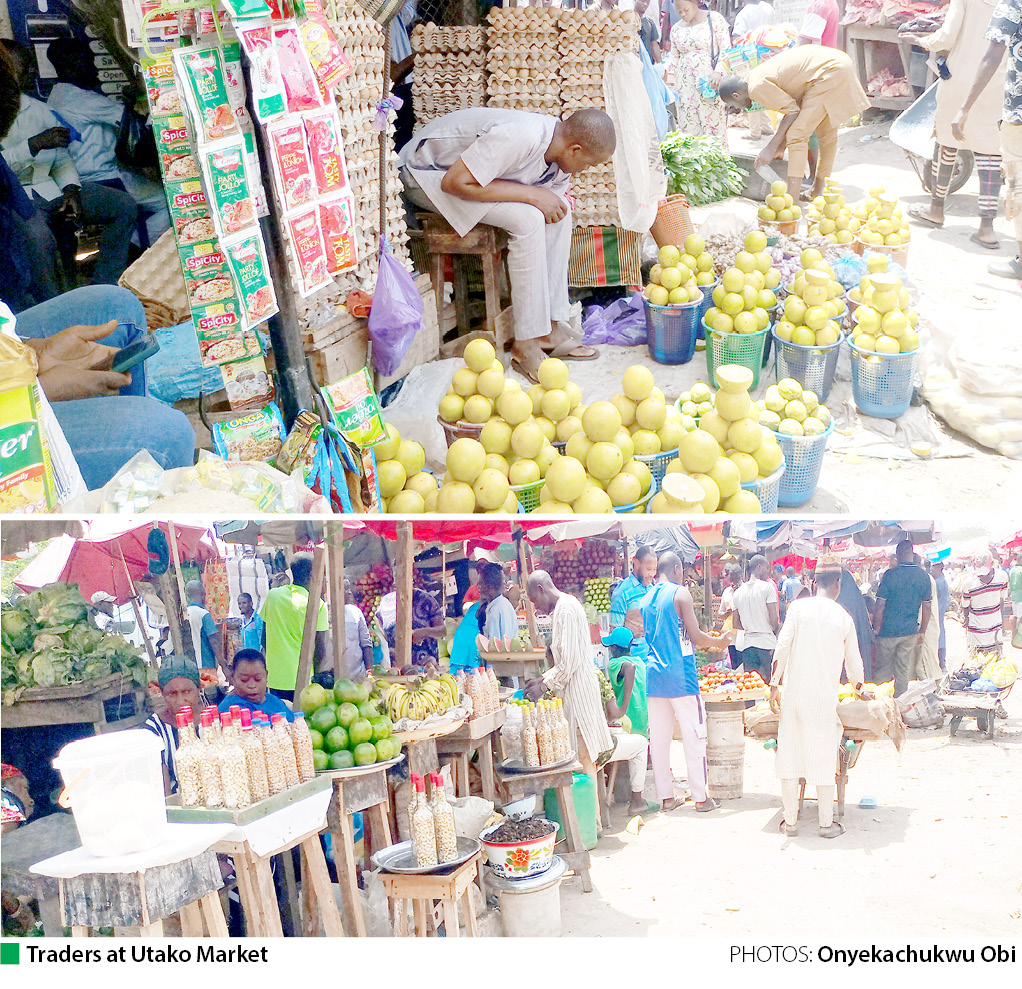
Fruits skyrocket
Prices of fruits seem to have increased in major cities in Lagos, Osun and Edo states ahead of the Ramadan fast.
Some of the fruit traders who spoke to Daily Trust on Sunday confirmed the increase in prices, which they attributed to high demand due to the forthcoming fasting period.
Our correspondent who visited some fruit sellers observed that the prices had increased as a slice of watermelon that was hitherto sold at N100 is now N200.
It was also observed that prices of oranges and other fruits like cucumber, carrot etc, increased. Five average sized oranges now go for N200
A fruit seller, Abdullahi Muhammed, said that every year during Ramadan, prices of fruits would usually go up because of high demand by Muslims and other people.
“Once it is Ramadan fast, major marketers of all these fruits increase their prices; and we have to increase too in order to make little profit,” he said.
Muhammed, who sells apple, cucumber and carrot, said the demand for fruits increased because Muslims use it to break their fast; and people who don’t ordinarily take fruits on a daily basis joined the population. So the price increases due to high demand, he added.
Another fruit seller, Abubakar Tijani, who sells watermelon and oranges, said they were not happy with the increase in prices but they did not an option.
“We sell the way we buy. At this moment, there is no watermelon of N100, a slice is now N200. The smallest bulb of it is now N500. It is not our fault because we also buy from people,” he added.
Speaking on the development, Sheik Abdulfatai Enabulele, condemned the practice of increasing prices of fruits during t5he fasting period.
The Chief Imam of Benin said, “We need these fruits to start and break the fast because it helps to replenish the body. It is now very costly, not because there is scarcity of it but as a result of profit.
“We are only calling on Allah to have mercy on those traders who increase prices. They should be very careful on how they increase prices deliberately because they want to make over 100 per cent gain; it has consequences
“When you overprice your products, it is haram. We are calling on them to be mindful of Allah, who said that prices should be moderate.”
Sheik Ibrahim Oyarekhua also said it was un-Islamic to increase prices of items because of Ramadan fast.
“It will definitely affect Muslims, but Allah will still make it easy for us to complete the fasting, which is one of the cardinal pillars of Islam. Allah is against arbitrary price increase,” he said.
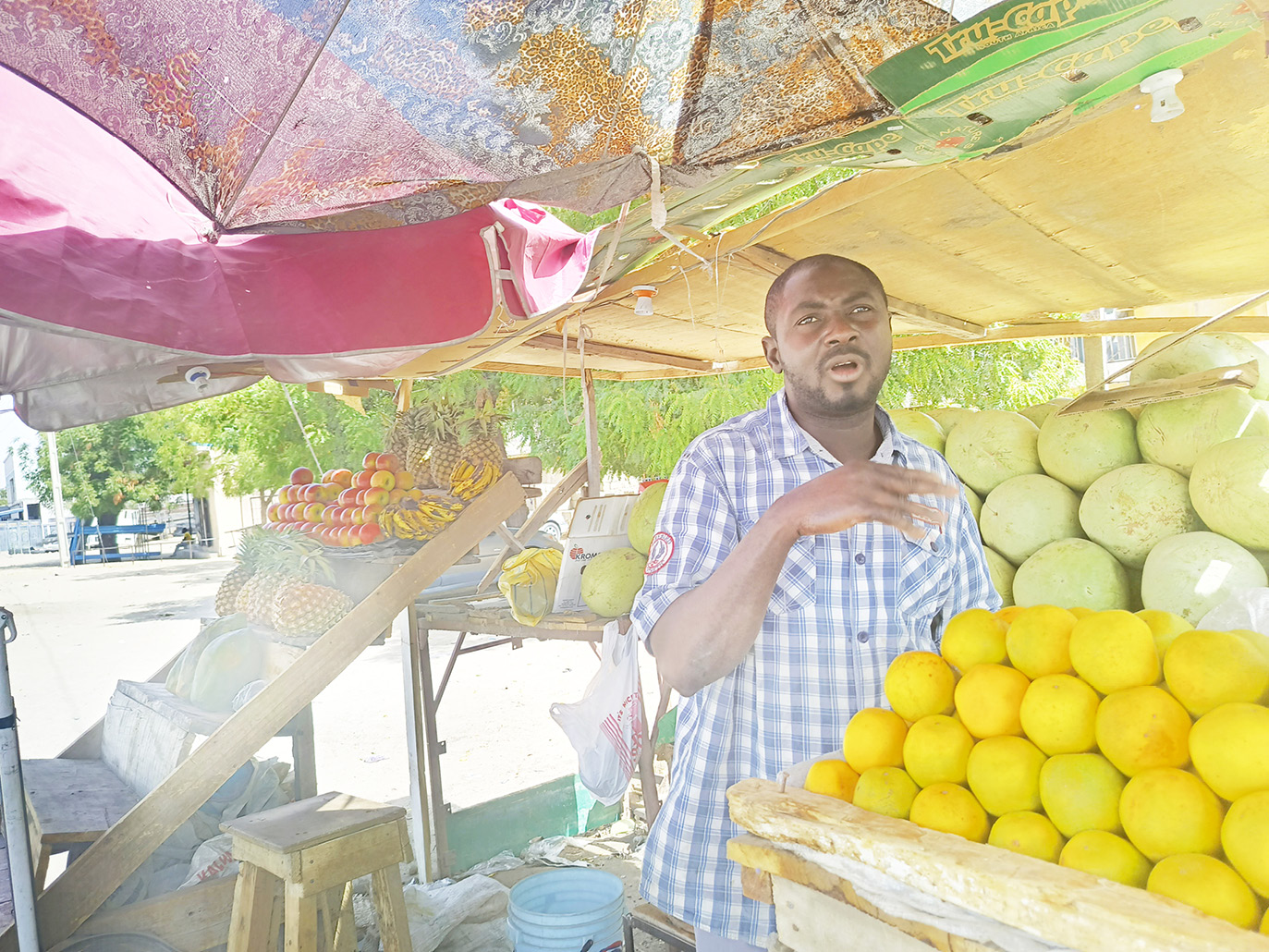
 Join Daily Trust WhatsApp Community For Quick Access To News and Happenings Around You.
Join Daily Trust WhatsApp Community For Quick Access To News and Happenings Around You.